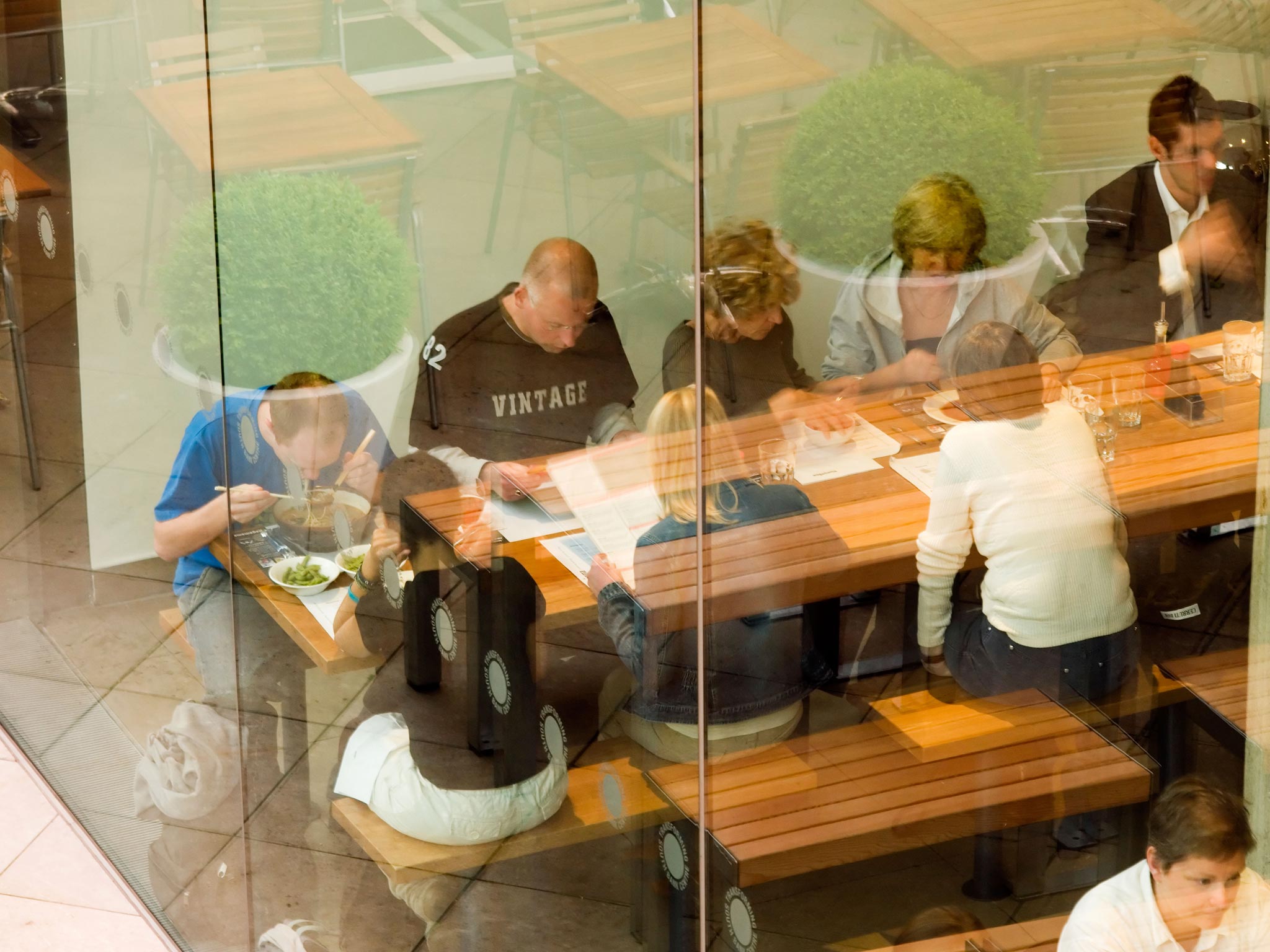Samuel Muston: Shared tables make fellow diners too close for comfort

Raw awkwardness garnished with a touch of hastily summoned nonchalance. That is how I would describe the look running across the faces of the people in front of us in the queue as the maître d' of a busy no-reservations restaurant asks the question: "Would you mind sitting on a shared table?" An enquiry that is quickly followed up with: "It will probably speed up the wait by quite a bit."
It is, for many people, the nightmare question. Of course, no one wants to be seen as a killjoy grump who can't stand to be in the presence of his fellow man, but, equally, who wants their conversation heard by the surrounding gang of eight strangers? And besides, there is always the lingering worry that if one doesn't "co-operate" with the staff in such establishments, and take the table you're given, you'll be waiting a very long time for dinner indeed.
And so, inevitably, one accepts, and one twists through all the paroxysms of discomfort that English people in close proximity to each other are heirs to. It is no coincidence that we are not traditionally a nation of flat-dwellers – it is all a little too close for comfort.
The things is, there is no dyed-in-the-wool reason it should be so. Germans are perfectly happy heading to the nearest kneipe and chowing-down with total strangers; New Yorkers, especially Brooklynites, seem to have got the knack of it, too. But we Brits? Not a chance.
There have been valiant attempts to convert us, of course, with some attempts more successful than others. Wagamama is always packed, in spite of its (bum-numbing) long benches and tables, but perhaps that is due to the fact you have to share there. And the same goes for the other creation of restaurateur Alan Yau, Busaba Eathai, where the tables are all vast squares. No choice, no problem. The shared table at London's The Modern Pantry, however, which sits amid two-and-four-seater tables, can be a lonely place. The fact is, if we find ourselves cheek-to-cheek with a stranger over our red snapper ceviche, we tend to eat at top speed and leave even faster.
The only two-hour or three-hour restaurants I know, the joints where people lean forward in their chairs to chat as they tackle their second bottle of wine, are the places with small well-spaced small tables. Such places have to have decent food and booze, of course, but it is also about something more than that.
For many, especially those of us who work long hours in cities, restaurants have become part of our personal space: the piano nobile we dreamt we'd have after one too many Evelyn Waugh novels. They have become extensions of the home: places of break-ups and amusement, high emotion and low behaviour. Places to catch up with your old friends and have a gossip with your mother. So, just as we don't want Frank from across the street sitting with us in the lounge as we have an argument over who does the washing-up, we don't want him sharing a bread basket with us either.
I'm not proud of it, but as we made our way to our own little, two-seat table, I smiled with sweet relief.
Subscribe to Independent Premium to bookmark this article
Want to bookmark your favourite articles and stories to read or reference later? Start your Independent Premium subscription today.

Join our commenting forum
Join thought-provoking conversations, follow other Independent readers and see their replies